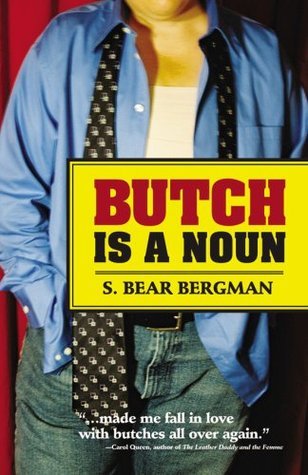What do you think?
Rate this book


173 pages, Paperback
First published November 2, 2006
This business of putting a butch through hir paces does not seem, by the way, to be a learned behavior, but rather an instinctive one; little four- and six-year-old femme girls that I meet in airports and ice cream lines regularly assume their command of me, asking me questions, telling me what they want and need. In their ways, they're looking for the right kind of audience, looking to have the right kind of attention; a kind of attention I can hardly describe, but one which I recognize as the sort that butches have for femmes. It is an attention heavy with some measure of restraint, a way of relating that is queered, with irony -- here's the tough guy, the dude, the butch with the flashy moves and the nice manners, the man of things, and yet this butch, if he's a gentleman, and I am, doesn't make a move without the femme's intention being explicit and assured.